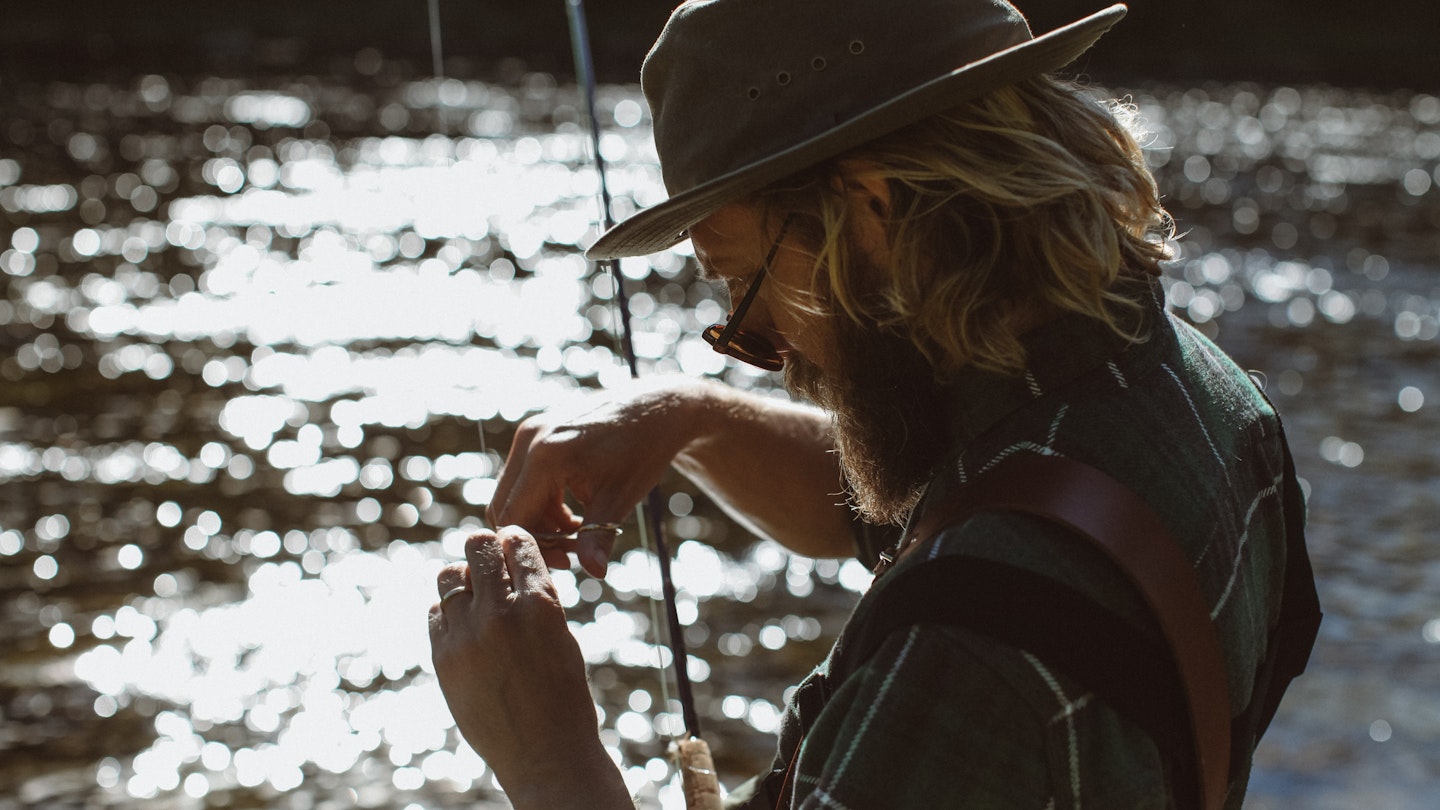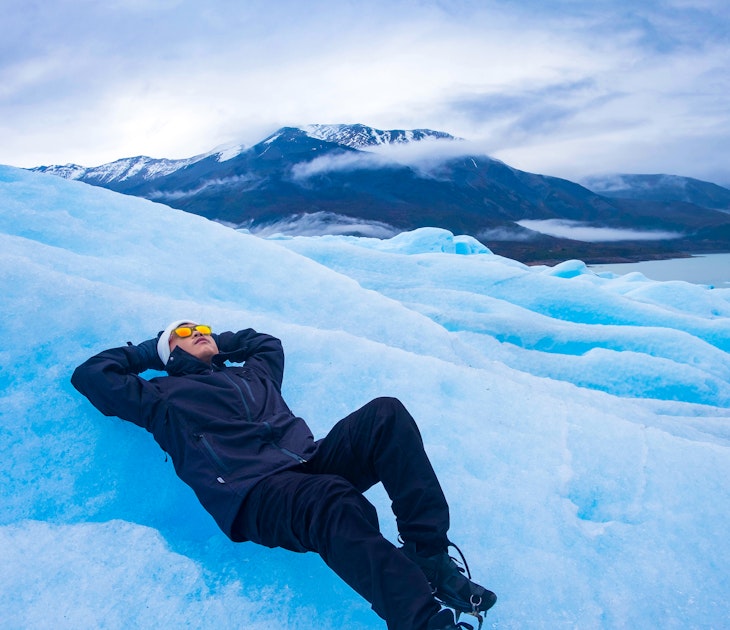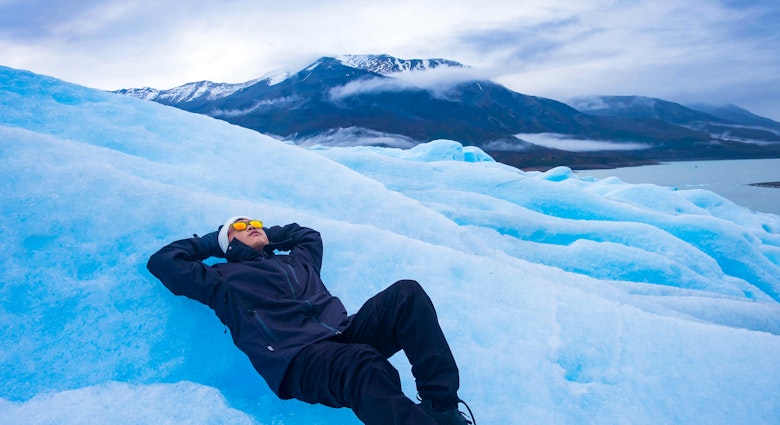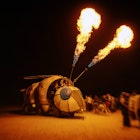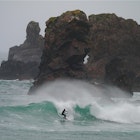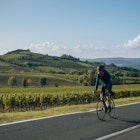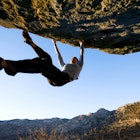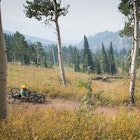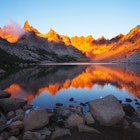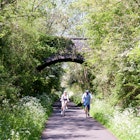Though not traditionally considered hip, the sport of fly fishing has started to reel in millennials looking to disconnect with the daily routine and reconnect with nature. But will it catch on? Madeline Weinfield dons the waders to find out.
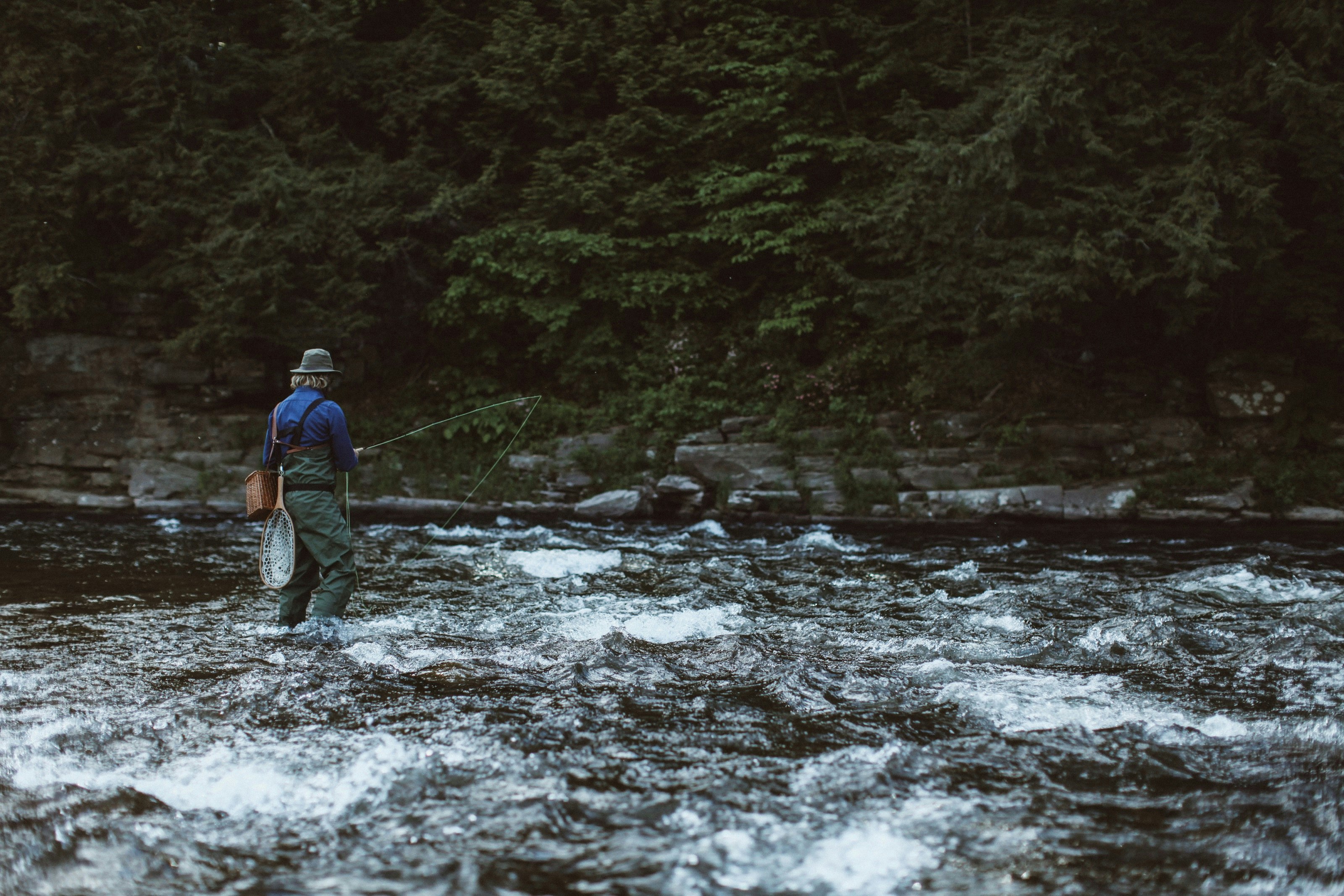
Like a true millennial, I came to fly fishing by way of Instagram, my lazy scrolling one afternoon briefly interrupted by a dreamy advert of attractive people wading thigh-deep in a river, casting rods into calm water.
A few seconds later, the gang moved on to drink cold (probably craft) beers in the woods as their freshly caught trout roasted on an open fire. As the ad closed, the group – with their wonderful hair and impossibly white smiles – were dining under the stars, laughing with one another around a long table illuminated by candles.
Powerless – as we all are – to Instagram's personalised-ad algorithm, it was not long until I found myself booking a weekend stay at Livingston Manor Fly Fishing Club.
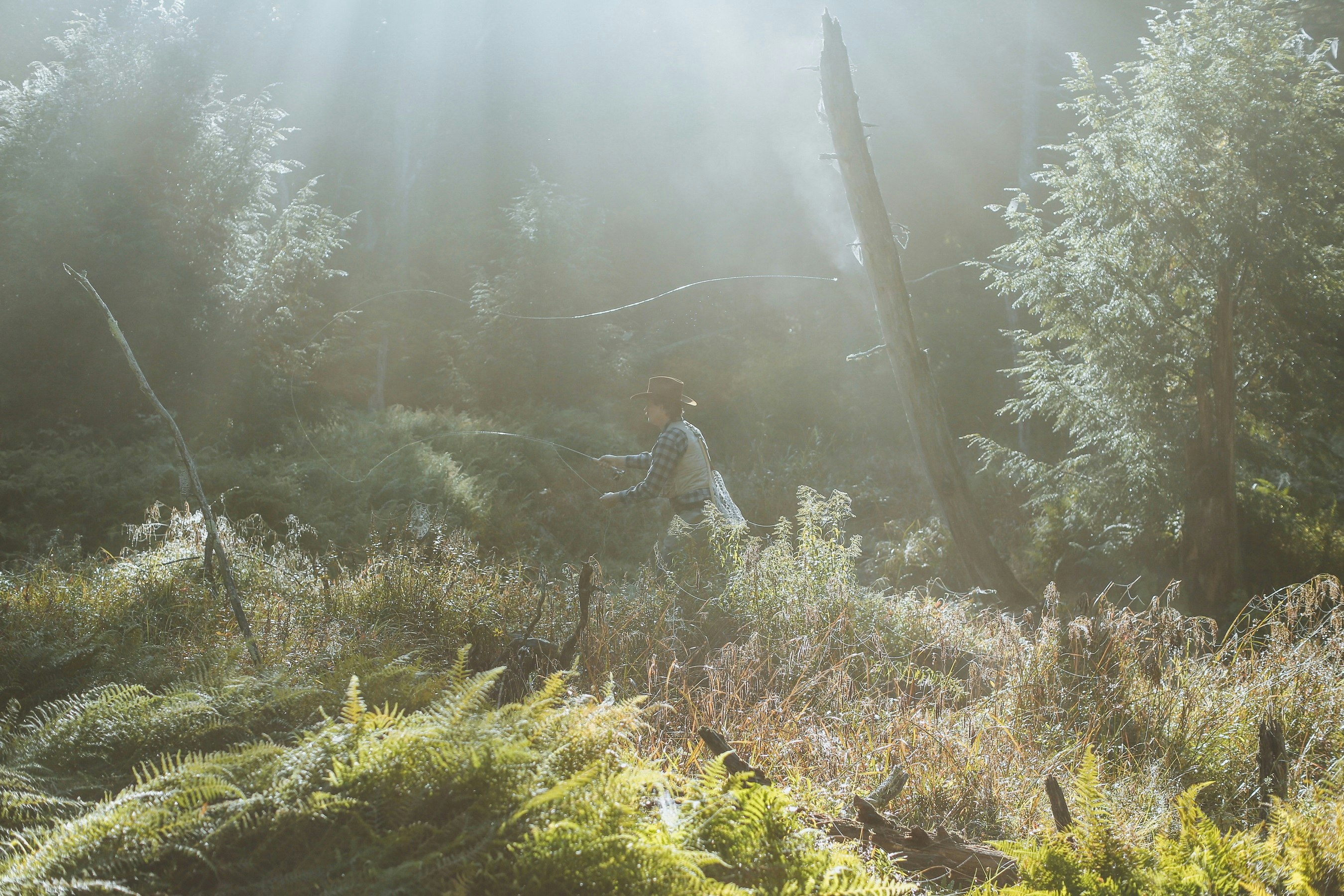
Casting off
Located in the heart of New York’s Catskill Mountains, in what has historically been a mecca for fly fishing, Livingston Manor Fly Fishing Club is a sort of summer camp for adults – a self-selecting group of mostly New York City residents who flee the metropolis’ maze for an adventure within driving distance.
The pretense is fly fishing (a sport some know and practice), but for many – and certainly me – the manor provides a first date with a new means of being immersed in nature.
The majority of the 16 others who are there for the weekend are under 35; a mix of men and women with whom I laugh easily between fly fishing and yoga lessons and talks by local conservationists and environmentalists.
Together we slowly fall under the spell of the river and our new-found sport, intoxicated by the ever-flowing Catskill Brewery beer and the magic of the manor's operators, husband-and-wife team Tom Roberts and Anna Åberg.
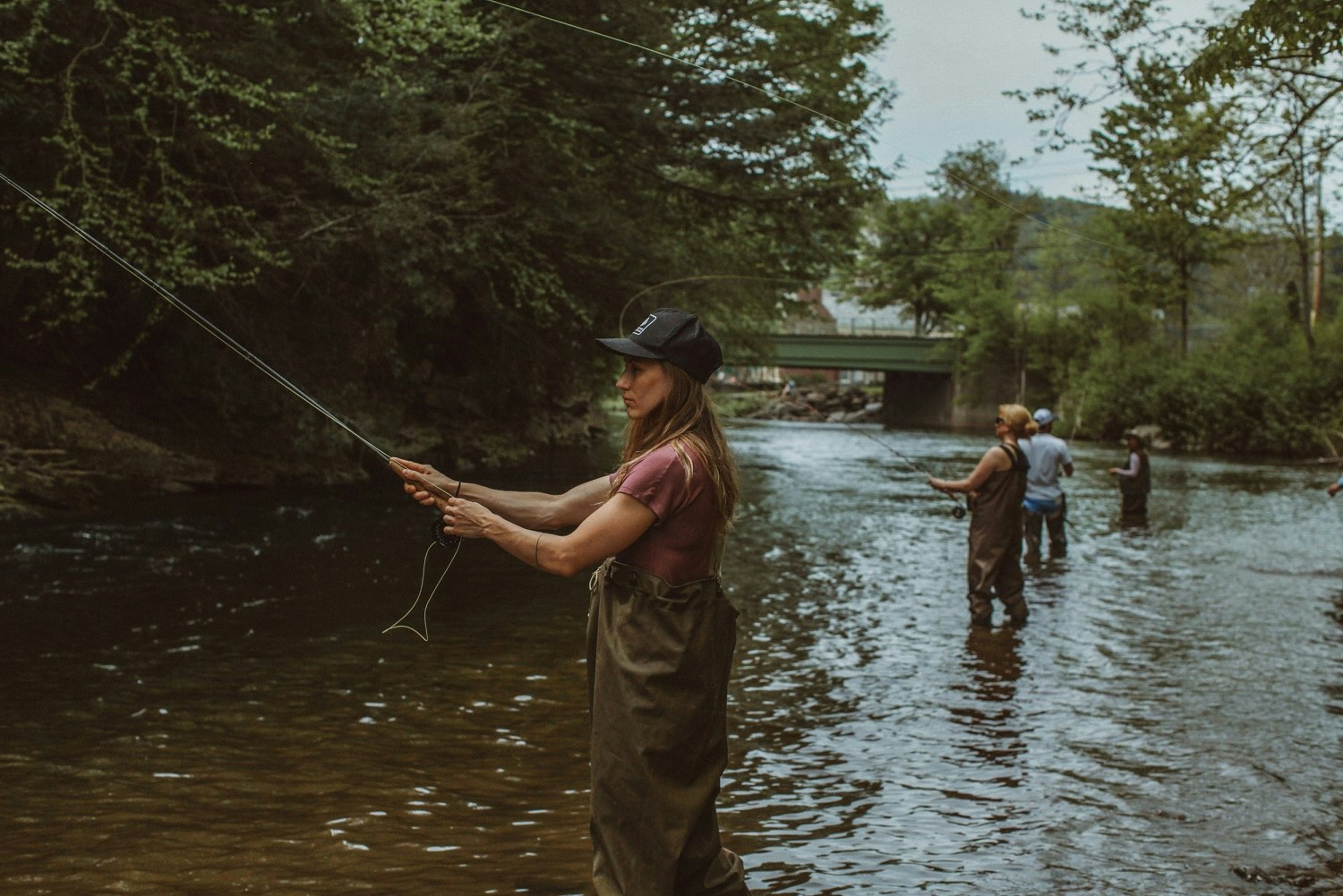
The poster children of new-wave fly fishing
If I’m an example of a millennial newly drawn to the sport, Anna and Tom are its poster children. Transplants from Brooklyn by way of the UK and Sweden, Anna and Tom speak for a growing trend in young people looking for something deeper than a vacation, slower than a Monday through Friday, and more connected – to people and the outdoors – than a phone signal.
With Livingston Manor Fly Fishing Club the pair (along with co-owner Mikael Larsson) have created a new take on a classic fishing lodge. Keeping the sense of rugged, outdoorsy authenticity but changing the image of the ‘fisherman’ to one that’s accessible to your average city dweller, who might not own a spot of tweed.
Like many who come to the sport early in life, Tom grew up with a father, grandfather and brother who were all avid fly fishermen. But unlike his family, he wrote off the sport, shunning the elitism he felt went along with it.
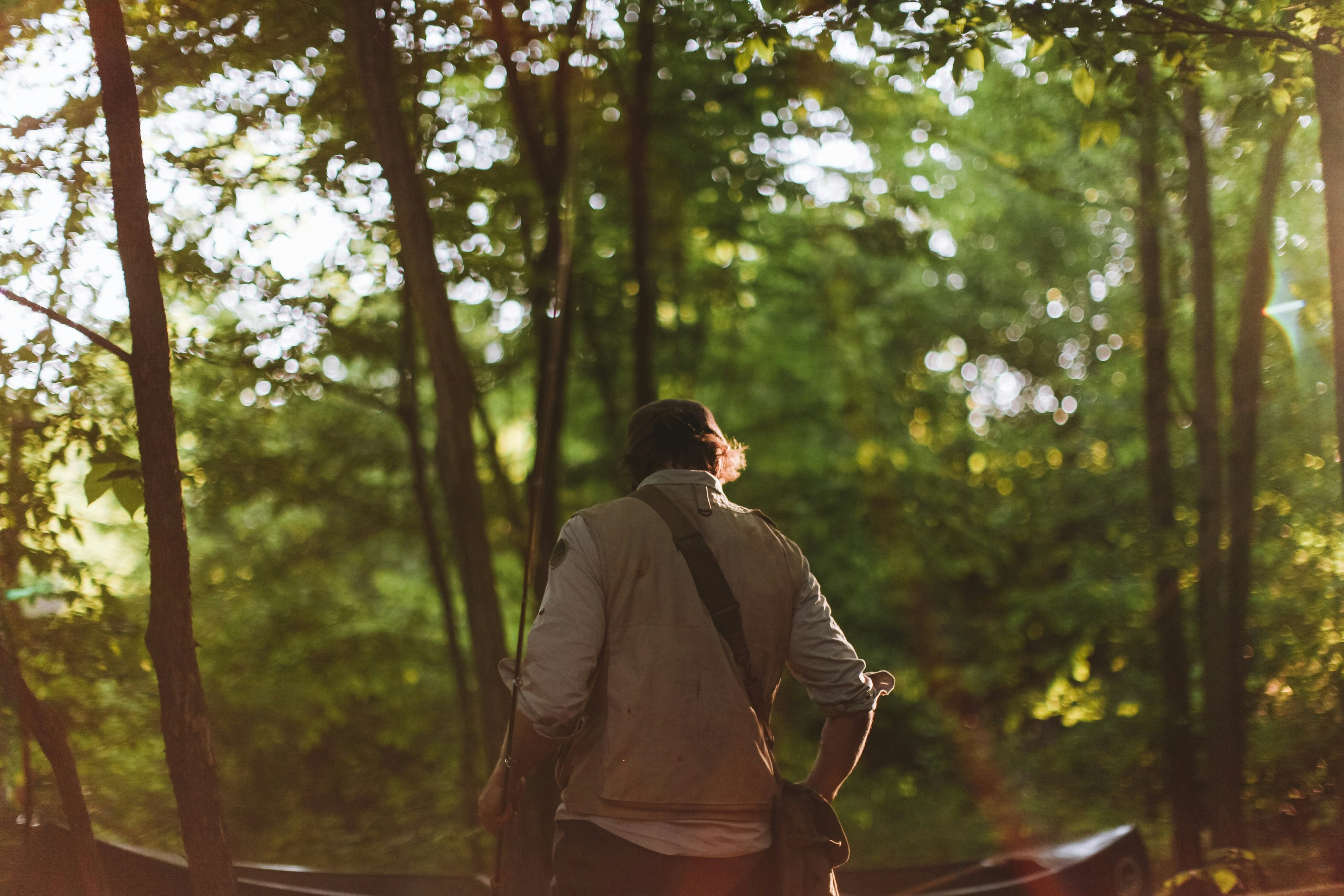
It took moving to New York City – and the constraints of living daily life largely confined to apartments spanning 500 sq ft or less – for him to give the sport another go. Longing for nature, he found himself on a river thanks to an experienced friend.
It was a turning point. The freedom of being out on the river, of listening to the sound of the water and the birds – there was no resisting it. Fly fishing became, as he describes, the “perfect antidote from sterile and hectic city life.”
Since then he and Anna have moved their lives from the city to their woodsy retreat in the Catskills. From the concept of a fly fishing lodge they’ve discovered, and marketed, an entire lifestyle, transcribing their take on the simple life for a generation hungry for it yet lacking a clear path to find it. And they’re far from alone in being wooed by the sport.
More and more millennials and those in Generation Z are discovering the allure of the water, of moving slowly and deliberately, quietly disconnecting from their over-connected worlds.

More than entertainment
Young fly fishers get a bit misty when talking about the sport’s allure, as if the act of wading, casting, and reeling is an art that brings them closer to a more authentic life, recovering a lost intimacy and connection that’s stripped from the everyday.
It’s in the movements and rituals of fly fishing that this new generation of fishers are finding a way to slow down, to listen to the noises of nature, to take note of every tug of the rod. While my weekend was a mere affair with the sport, for others fly fishing becomes intricately entwined in their trajectories.
Fly fishing gave 20-year-old Thomas Hale a way to take a pause from college in North Carolina, but the connection runs deeper than simple enjoyment or escapism: he finds poetry in the catch and release.
“There is something indescribable about seeing a trout dart back into a riffle and slowly disappear as their perfected camo tricks your eyes,” he tells me, wistfully, now back at the books in North Carolina.
For Andrew Ashburn, 30, who fishes in the Morgan River near his home in Lewes, Delaware, fly fishing is an act that pushes him to be “extremely present.” He revels in what he calls the “keen understanding and intimacy” fly fishing requires of him to truly understand the water and landscape and the habits and seasonal tendencies of the fish and insects. It’s a command to know, pay attention, remember, and learn. And how many other things in our lives ask this of us?
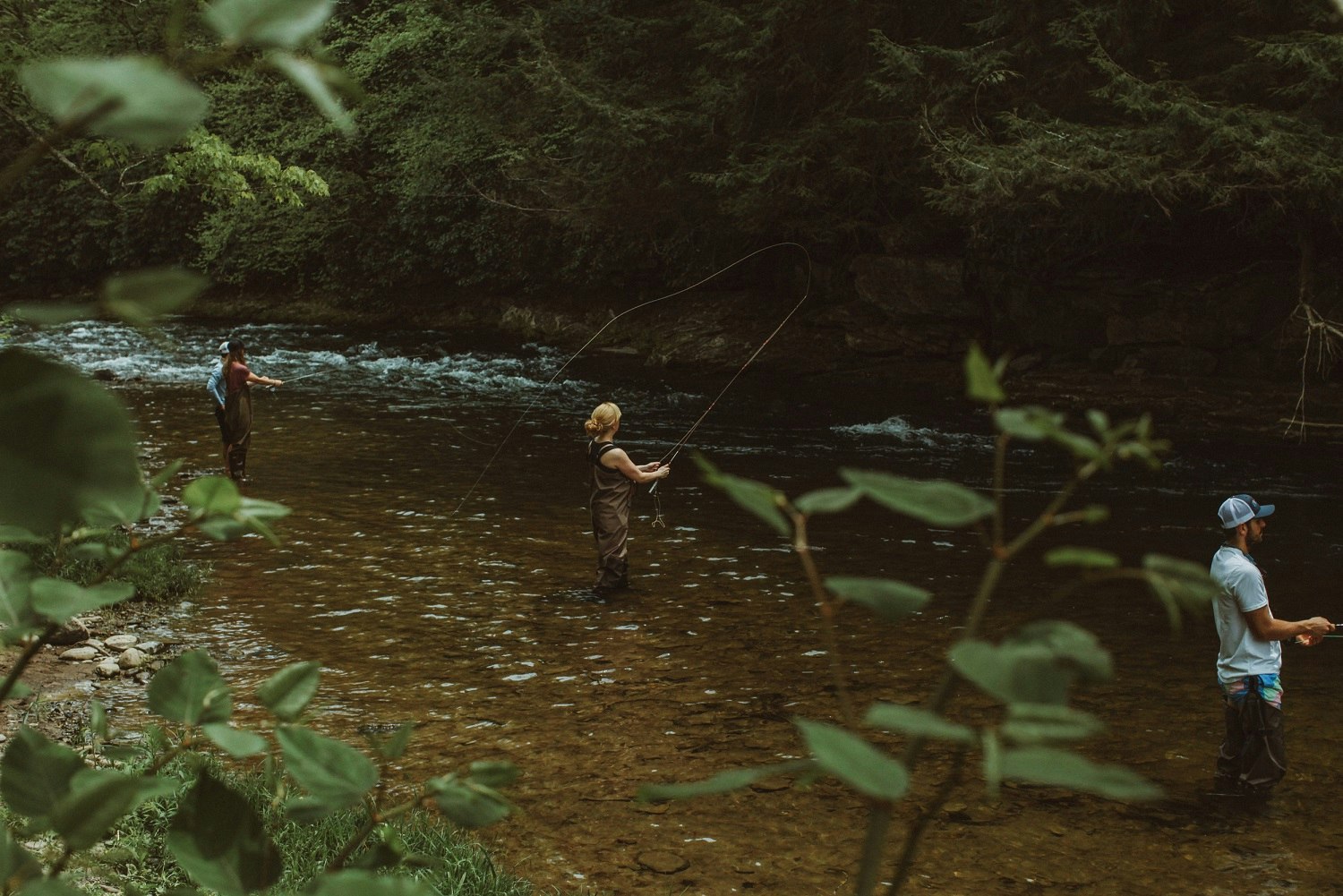
A change in the waters
Despite its popularity with its new under-40 converts, fly fishing is a sport still largely dominated by men, with skills passed from fathers to sons.
But change seems to be in the waters. I’m among many women at Livingston Manor Fly Fishing Club who are drawn in by the beauty and silence of the cast.
And Livingston Manor’s female anglers aren’t alone. According to the New York Times, women are now the fastest growing demographic in the sport, with female fishing groups springing up all over the USA, including nonprofit groups like Casting for Recovery, which unites and empowers breast cancer survivors on fly fishing expeditions around the country.
Back at Livingston Manor, Tom waxes on the merits of the pastime to me as we stand beside a trickling river.
“When every other part of my life feels like it’s speeding up, I love the slower pace of fly fishing,” he says, “It’s a sport that rewards patience.”
Despite my own frustration with not catching anything, I’m beginning to understand what he means. Our modern world may be one of immediacy and instant gratification, but I've found casting (successfully or otherwise) to be a lot more gratifying than scrolling.
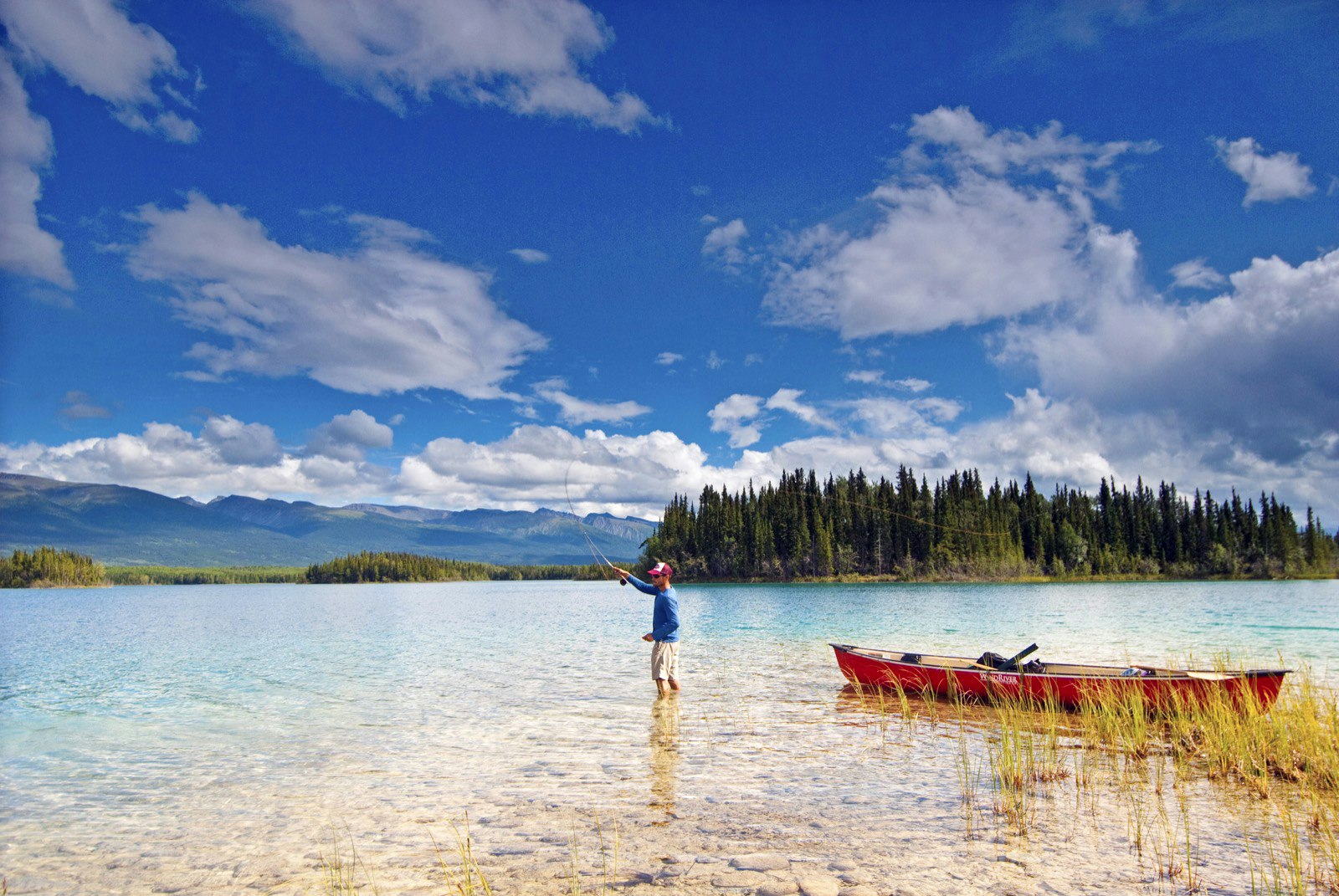
Try it yourself
Want to give fly fishing a go? Here are five fly fishing spots within a few hours of some of the world’s major cities:
1. Livingston Manor, near New York, USA
A two-hour drive from New York City, Livingston Manor, and its surrounding towns, make up the 'trout capital' of the east coast. You’ll find a range of guides and outfitters here, as well as scenery that’ll astound newbies and seasoned fisherfolk alike. Stay at Livingston Manor Fly Fishing Club for an immersive experience.
2. Leixlip, near Dublin, Ireland
Brown trout are abundant in the long River Liffey in season, and scenic fishing spots extend along its banks right into the suburbs of Dublin. A great fishing base is the small town of Leixlip, a town 30 minutes by train from the Irish capital, where anglers can dip their fly in the waters of the Liffey and the neighboring Rye. Accommodation, including the Court Yard Hotel, is plentiful.
3. Flix, near Barcelona, Spain
Set amidst the beautiful countryside of western Catalonia, and just a two-hour drive (or a two-and-a-half-hour train ride) from the urban sprawl of Barcelona, Flix is a tiny community on a horseshoe bend of the Ebro River. Flix’s waters play host to an annual fishing contest, which draws in anglers from all over the world. Stay at the Resort Rural Vilar Riu de Baix.
4. The Paraná River, near Buenos Aires, Argentina
You don’t have to go as far south as Patagonia to enjoy quality fly fishing in Argentina. Just 30 minutes from bustling Buenos Aires, Delta Eco Lodge offers anglers the opportunity to fish for tararira and revered golden dorado on the beautiful waters of the Paraná River.
5. Rakaia, near Christchurch, New Zealand
Less than an hour from the centre of Christchurch, the largest city on New Zealand’s South Island, the Rakaia River is a wonderful spot for salmon fly fishing. Film buffs may be familiar with the scenery here already: the region had a starring role in Peter Jackson’s Lord of the Rings trilogy. There are a couple of hotels, like the St Itas Guesthouse, in Rakaia, on the bank of the river.
Looking for more fin-spiration? Check out our recommendations of the top fly fishing spots around the world.
